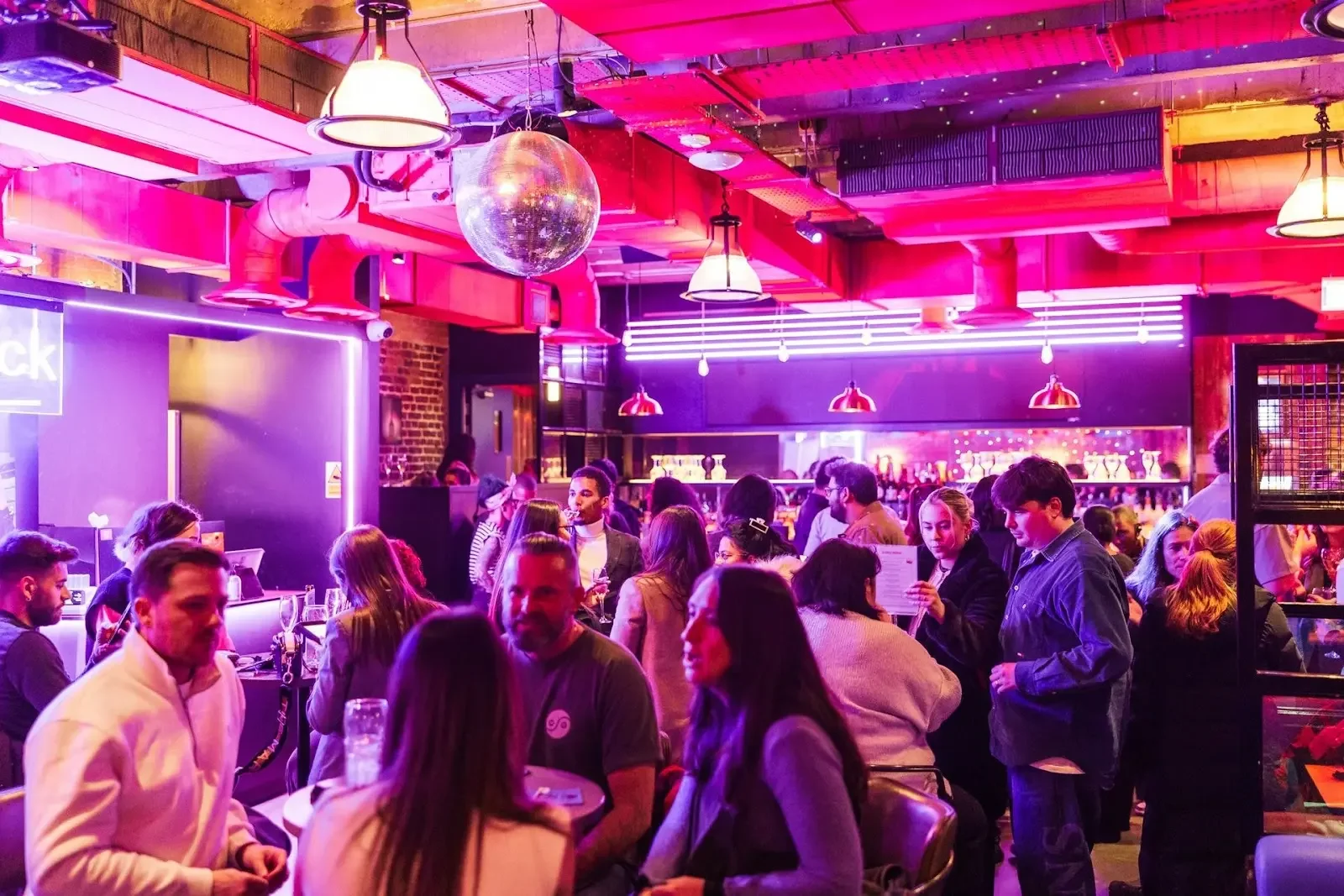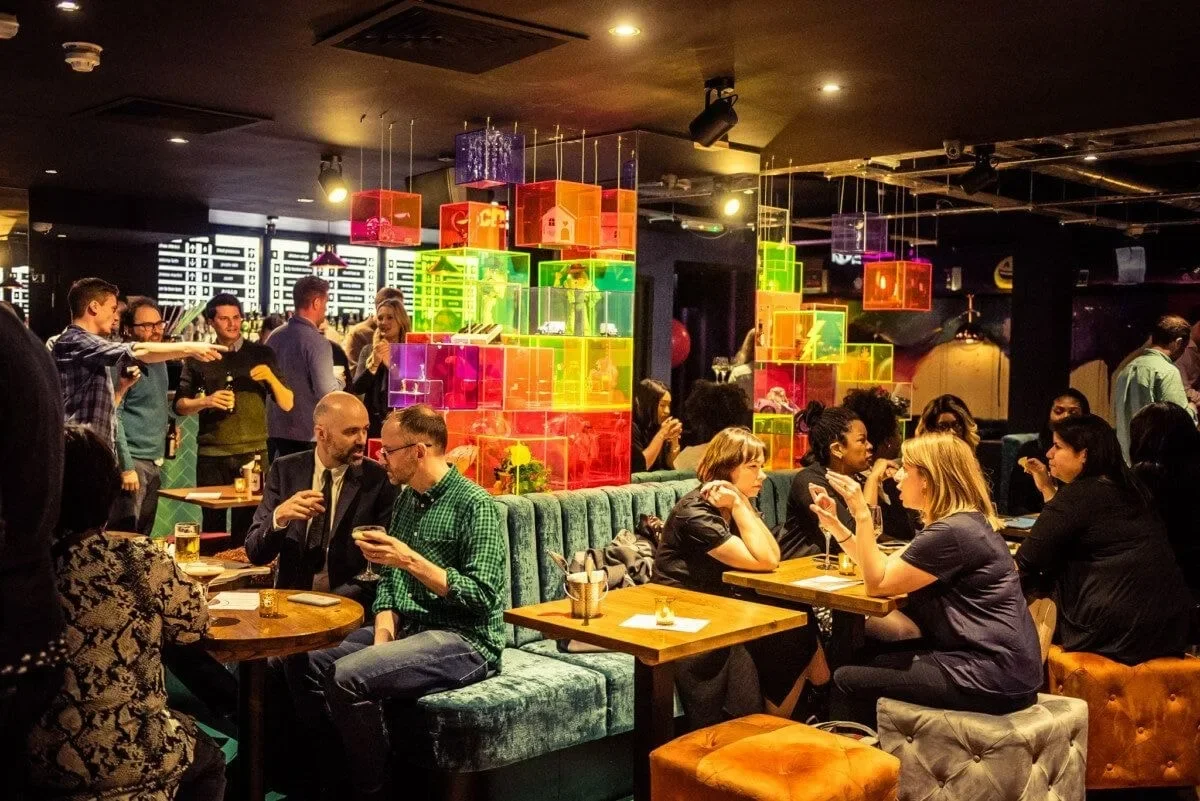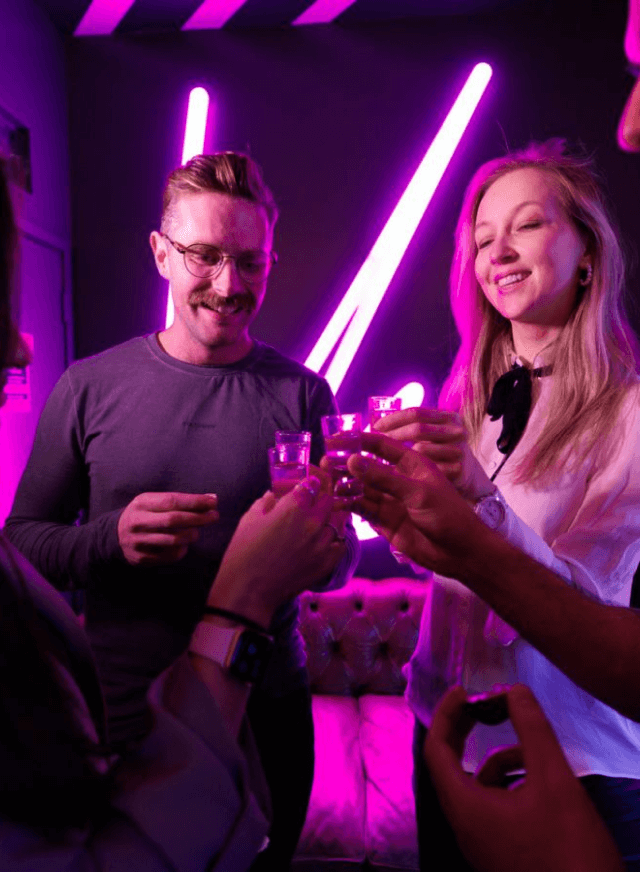Karaoke Statistics UK: Where & How are People Singing?
Bristol is hitting the high notes, leading the karaoke revolution in Britain with 51 vibrant venues, as a chart-topping 4 in 5 Gen Zers fuel a £115.8 million industry remix of the UK hospitality scene — all by swapping the humble pub background music for next-level, experiential social get-togethers featuring karaoke software and hardware designed for commercial use.
For businesses watching the dance floor get emptier, karaoke integration offers more than just a juke box fix: it delivers a 12.2% bump in return on assets and helps raise spend-per-head by an electrifying 42%. This blog drops the full playlist of karaoke statistics, participation patterns, financial returns, and technology trends to help hospitality venues and entertainment enthusiasts ride this growing trend to chart success.
UK Karaoke Industry Landscape and Market Size
Britain’s karaoke industry is music to the ears of commercial venue owners, sporting 367 dedicated karaoke venues — from high-energy karaoke bars in city centres to boutique karaoke boxes tucked away in creative corners. England is the headline act, with 314 venues representing 85.56% of the national share, while Scotland (33 venues, 8.99%), Wales (18, 4.9%), and Northern Ireland (just 2, 0.54%) play important supporting roles.
Geographic Distribution of Karaoke Venues Across Britain
England: 314 venues (85.56% share)
Scotland: 33 venues (8.99%)
Wales: 18 venues (4.90%)
Northern Ireland: 2 venues (0.54%)
Total: 367 karaoke venues nationwide
Top Karaoke Cities and Regional Hotspots
Bristol wears the karaoke crown with 51 venues, but Brighton isn’t far behind with 40. Old faithfuls Liverpool and London add to the chorus, the latter offering an estimated 68 venues across its bustling boroughs. Leeds, Southampton, and Nottingham all operate between 32 and 34 venues, each contributing distinct musical flavours to their local karaoke experience.
Market Valuation and Growth Projections
The UK karaoke applications market is valued at £115.8 million and is set to soar to £362.3 million with a projected 10.073% CAGR through the forecast period.
Venues embracing the competitive socialising trend (think karaoke kan-style group rooms) have surged by 40% from 2018-2024.
Financial Impact on UK Hospitality Venues
Return on Investment and Revenue Enhancement
Venues with karaoke systems achieve a 12.2% increase in return on assets, supported by a 31% average uptick in foot traffic on karaoke nights.
Customer spend leaps by as much as 42%, with over half of guests returning thanks to the irresistible pull of private karaoke rooms and curated song libraries.
Venue operators report average ROIs paying back installation costs within 8 to 14 months, thanks to repeat business and enthusiastic group bookings.
Customer Acquisition and Retention Metrics
Nearly 30% of UK adults enjoy competitive socialising venues annually, with 41% of regulars making monthly returns.
60% say venues with added activities — from hosting karaoke nights to solo karaoke challenges — are more attractive.
Group bookings are music to managers’ ears: some venues report customer numbers nearly doubling post-installation.
Demographics and Consumer Participation Patterns
Generation Z Leading Karaoke Adoption
Gen Z is the headline act: 80% are more likely to visit pubs offering karaoke or games, with 4 in 5 opting for venues with interactive, music-related leisure activities.
Venues offering private karaoke rooms and on screen lyrics — perfect for social media sharing and sober karaoke sessions — are gaining major traction.
Millennial Participation and Preferences
Millennial engagement remains strong; 74% actively seek karaoke-equipped pubs, leaning into nostalgia with 2000s hits like “Backstreet Boys” and “Billie Jean.”
Millennials prefer private rooms for their karaoke experience, usually resulting in bar guests staying longer.
Cross-Demographic Appeal and Participation Rates
While only 25% of adults over 66 are interested in competitive socialising venues, over half of competitive socialisers want traditional pubs enhanced with karaoke music, music player upgrades, and dynamic song libraries.
Urban areas and those with robust educational backgrounds show higher karaoke engagement, while regional quirks influence music choices and world record attempts (such as the UK’s famed longest karaoke marathon competitions).
Venue Types and Singing Environment Analysis
Private Karaoke Room Phenomenon
Private karaoke boxes are the fastest-growing karaoke market segment.
Bookings usually last 2-3 hours, creating a premium vibe for both solo karaoke and group singalongs.
Traditional Pub Integration Strategies
Professional karaoke software and karaoke equipment, staff training, and venue licensing for music and alcohol are critical to success.
Pubs with a karaoke machine report 31-50% increases in customers, with flexible charging models — pay-per-song, pay-per-room, or karaoke as an add-on.
Popular Song Choices and Cultural Preferences
Most Popular Karaoke Songs
“Mr. Brightside” by The Killers, “Dancing Queen” by ABBA, and “Valerie” by Mark Ronson/Amy Winehouse top the nation’s request lists.
Ever-popular classics like “Bohemian Rhapsody” and crowd-pleaser “Sweet Caroline” bring everyone together under the spotlight.
Genre Distribution and Musical Trends
Across the UK’s karaoke bars and digital platforms, rock, pop, R&B, and punk hold sway, with British artists consistently commanding prime slots.
Songs that encourage communal singing and have strong sing-along appeal shape every karaoke night playlist.
Demographic Variations in Song Selection
Gen Z are spinning Olivia Rodrigo and Harry Styles, while millennials choose classic rock and alternative anthems.
Some hits cross all borders, including Queen and ABBA; meanwhile, regional flair (from Celtic melodies to Manchester indie) mixes up the song library and encourages more diverse musical participation.
Regional Variations and Local Market Dynamics
London Market Characteristics
London boasts 68 karaoke venues, with premium experiences in entertainment districts.
The city thrives on a mix of tourist and local energy — meaning competition motivates operators to push boundaries and diversify offerings.
Northern England Karaoke Culture
Liverpool (38 venues) and Manchester maintain distinct local music identities, with karaoke singing dovetailing with the region’s industrial roots and community focus.
Scottish and Welsh Market Development
Scotland (33 venues) and Wales (18 venues) are both seeing urban concentrations and regional nuances: Edinburgh and Glasgow drive the Scottish karaoke scene, while Cardiff is the Welsh karaoke capital, often showcasing Celtic influences on playlists and special events.
Future Trends and Industry Predictions
Market Growth Projections
The number of competitive socialising venues is set to exceed 800 by 2029, while home-based karaoke keeps pace with an 8.5% forecast CAGR.
Expect digital platform adoption to keep rising, with private karaoke rooms and AR-enhanced visuals making karaoke an increasingly popular choice for all ages.
Closing Thoughts
Karaoke in the UK has gone from humble pub pastime to £115.8 million headliner, powered by the voices (and Google searches) of Gen Z and millennials who crave memorable music-related leisure activities over standard background music. With Bristol, Brighton, Liverpool, and London each bringing their own sound to the national karaoke revolution, it’s no wonder that over 367 entertainment venues are thriving.
A professional karaoke system gives you the power, reliability, and features to keep the crowd singing, the performers smiling, and the venue thriving. Whether you want to go all-in with karaoke rooms or just host the occasional Friday night singalong, Lucky Voice for Business has karaoke software to suit every setup.
🎤 Ready to turn your bar into the go-to karaoke destination? Let’s get your crowd singing – and your tills ringing.
Get in touch and let’s turn up the volume on your success.



